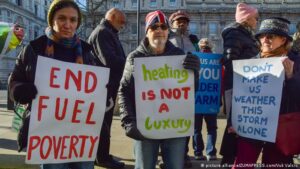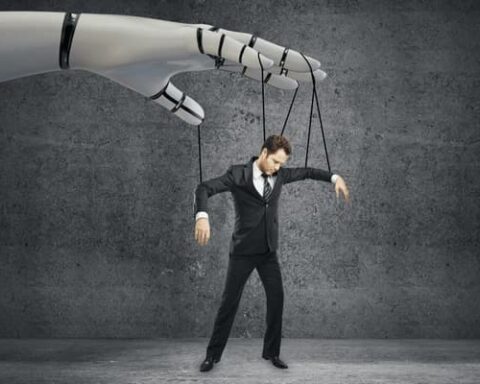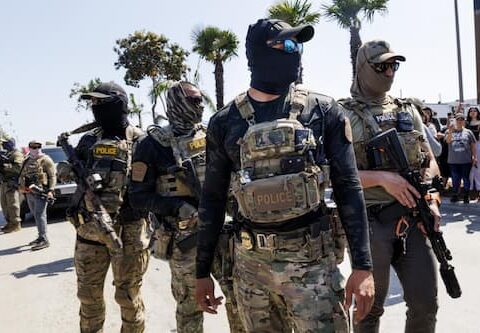Have you noticed how everyone seems to be turning against protesters?
It can’t have escaped anyone’s attention that coverage of protesters and protest, whether in the media or online, has become increasingly negative, even hostile.
In fact, much of the media coverage of recent protests in the UK has outright *demonised* protesters and treated them almost as enemies of the country or the general public. They seem to have been working hard on making protesters out to be some kind of enemies of the common people or common good.
Why? Why is so much of the media and the public discourse so intent on turning popular opinion against protesters? Isn’t the right to protest a cornerstone of a free society: and an inalienable civil liberty? And weren’t protesters (and the right to protest) traditionally seen as a bulwark against bad government or unjust policy?
Well, interestingly enough, this climate of anti protester sentiment (both in the media and in general public discourse) happens to coincide with the government’s mounting campaign against protesters and its vision of hugely suppressing the right to protest in this country.
I’m not sure it’s coincidental that most of the media devoted so much time to vilifying protesters or complaining about protesters causing inconvenience and disruption… and spent very little time at all discussing the government’s alarming moves against the right to protest.
Let’s talk about these anti protest laws.
Even after being rejected more than once by the House of Lords, the Police, Crime, Sentencing and Courts Act 2022 was passed by the Houses of Parliament in April. Among other things, the bill ‘gives the Home Secretary broad powers to make regulations without reference to Parliament and to decide on the type of protest deemed acceptable or unacceptable by the state...’
In essence, it seriously expands the powers of the Home Secretary (and seriously diminishes the rights of the average citizen): the Home Secretary was Priti Patel at the time the legislation was being developed, and is now the equally lovely Suella Braverman.
As Ian Dunt wrote at I.News back when the bill was first being forwarded: ‘She’s done it very quietly. Away from prying eyes, in the parts of parliament which journalists don’t pay much attention to, Priti Patel has effectively criminalised the act of protest. The Government waited until the final stages of a bill’s legislative process and then suddenly proposed a series of amendments, leaving reporters and human rights groups very little time to raise the alarm…’
He describes it as ‘the single greatest legislative threat to British liberties in our lifetime‘.
The bill allows police to crackdown on even entirely peaceful protests – for any reason the Home Secretary deems justified. One of the hypothetical ‘crimes’ the peaceful protesters might be criminalised for is causing something like a “serious annoyance” to surrounding communities or areas.
How do you protest *without* causing “annoyance” to someone?
Isn’t that the whole point of protest – causing some degree of disruption or annoyance is how to have your issue/protest get noticed. No one pays any attention to timid, quiet protesters holding up signs: but, for better or worse, they do pay attention to disruptive or annoying protesters like the Extinction Rebellion kids or Just Stop Oil.
And what’s the alternative to peaceful protest? Violent protest?
Parliament’s Joint Committee on Human Rights had already condemned the public order powers in the proposed Police, Crime, Sentencing and Courts Bill back in June 2021, suggesting it violates human rights. As it pointed out, ‘Peaceful protests are by their nature liable to cause serious annoyance and inconvenience and criminalising such behaviour may dissuade individuals from participating. Offences are already available under existing laws to deal with public nuisance offences...’
As the committee rightly points out, the police already have existing powers to deal with any protesters who engage in criminal offenses, including public nuisance offences. So why are new, expanded powers needed?
Various commentators have pointed out that these proposed powers are more suited to a dictatorship than to a democracy or a free society.
The right to protest is – or at least used to be – considered a foundation stone of any free society.
And, of course, this isn’t about whether we agree or disagree with any particular protest movement or its methods: but about what the criminalisation of protest will ultimately *mean* in the long term. Laws being made today and precedents being set right now are going to effect this society for a long time to come.
Lawyers warned the Government the proposals in the bill “clearly violate international human rights standards”.
You know, this makes one wonder whether that disgraceful police behaviour towards the women who were gathered peacefully in the wake of Sarah Everard‘s horrific murder (by a policeman, no less) might actually have been a testing of the waters: or a sort of statement-of-intent regarding how the police are going to handle peaceful protesters in the future.

If all of this isn’t already suggestive of a tip-toe towards Chinese style Orwellianism, how about this?
Something called an ‘SDPO‘ can be imposed on anyone for ‘protest related offences’: and, once issued, as this columnist writes, ‘Once the order is imposed, it eradicates your rights to freedom of speech and freedom of assembly. Those under an order can be forced to report to the authorities whenever the courts demand it, as often as they demand it. They must “present themselves to a particular person at a particular place at… particular times on particular days”…’
Jail terms of up to 51 weeks (yes, 51 weeks: basically a year – I don’t know why they don’t just say a year) are envisioned for some offenses: though the vagueness of what constitutes being a public ‘nuisance’ is of particular concern.
Everyone from Gandhi to the Suffragettes were public nuisances, after all.
Assuming that various protests will be assessed by the Home Secretary or the police on a case-by-case basis, the government could basically criminalise or shut down any protest it isn’t comfortable with: and criminalise anyone involved in that protest.
Some could argue that this would only be used to target particularly disruptive or destructive protests: but if police handcuffing and forcibly removing female protesters from the vigil in Clapham Common – a vigil to a woman named Sarah Everard who was raped and murdered by a serving police officer, for god’s sake – was seen as an outrageous over-step, then consider that this kind of action could become entirely commonplace.
And those women were entirely peaceful protesters, remember.
Conservative MP and former Brexit Secretary David Davis talks common sense when he says, “These are incredibly vague terms, frankly. Demonstrations lead to inconvenience.” He also adds the same warning I have been including in articles here for years now when he says, “Every law we write must be written on the presumption it will be a government very unlike ours that oversees it at some point in the future. What if, in 20 years time, we have an extreme-right or an extreme-left wing government and have this sort of vague issue in place…?”
And that’s always the point. The bad laws introduced by one government in the present can be inherited by much worse governments in the future – who will abuse such laws for their own purposes.
You know, imagine if we have the extreme right-wing nationalist British government envisioned in V For Vendetta, for example? The framework already seems to be fully assembled for that kind of scenario to develop in this country.
With each passing year, V for Vendetta looks more like a prophecy than a work of Dystopian fiction (so much so, in fact, that I wrote a whole article about that recently).
Hell, we don’t even have to speculate about a possible tyrannical future like V For Vendetta: the Home Secretary who pushed most of this legislation, Priti Patel (also the chief architect of the Rwanda scheme) already basically acted like someone who’d fit right into that Dystopian vision: as does her replacement, Suella Braverman (who in fact seems to be entirely obsessed with one-upping her predecessor on every level).
Just listen to the things they say and the way they say them – they would fit into that movie just fine.
In some recent cases (see here and here, for example), the police even arrested *journalists* who were simply trying to report on the protests.
Barristor Chris Daw QC said in an interview back in 2021, ‘…”The bill hands over the power of deciding whether a protest is justified or should be allowed — decisions we as citizens have had for generations — directly to the Home Secretary. That’s an extremely chilling development“…’
Again, you should notice, of course, that while all of this anti-protester legislation has been worked on by the government, a parallel campaign has been run in both right-wing media and online social media to demonise protesters too: whether it’s Extinction Rebellion, Just Stop Oil, or any of the other protest groups populated mostly by young people.
That’s not a coincidence.
The government and parts of the media seem to be, as ever, working hand in hand to advance an agenda.
We are therefore forced to wonder if there’s something coming down the line that they’re very worried about – something that will provoke substantial protests. That might be why they’re trying to get ahead of it: by putting harsh, Draconian measures in place in advance.
Whether this would be to do with another pandemic/lockdown situation, a diminishing economic outlook and diminishing quality of life due to the cost of living, or something else entirely, is difficult to guess at.

For example, the spiralling ‘cost of living crisis‘ is only in its early stages: god only knows how bad things could get, as corporations and billionaires continue their vast heist – aided by a government that works to service them and at the expense of the general population.
If anything, I’ve been surprised by how limited or muted any protest against the cost-of-living crisis or the energy bill rises has been: it’s as if most people have had all the energy sapped out of them by now.
The bottom line is that the government clearly wants the ability to criminalise protesters: and even, in the long run, to outlaw protest itself. The question is why?
And where would all of this lead?
Well, ultimately even further into a Police State: one controlled by a government increasingly under the control of corporations and the billionaire class.
Meanwhile, this view of protesters as the enemy is not new: although the UK government has never been this blatant about its views before. There are lots of countries where protesters are harshly policed and generally viewed as enemies of the state: China and Russia don’t have a great record with how they handle protests, for example. Iran *really* doesn’t, as recent events have shown.
But documents obtained by the American Civil Liberties Union (ACLU) during the Bush era revealed that the Pentagon was conducting major surveillance on scores of entirely non-violent protesters as part of an ‘anti-terrorism database’.
In other words, peaceful protesters were being regarded the same as *terrorists*. And a similar direction seems to be occurring in the UK.

The newspaper clip shown above is from an article in The Guardian, reporting on how young protesters in the UK are literally being put into the same box as terrorists: just as was going in the US during the Bush regime.
Yves Smith, writing in 2012, noted that then-newly-declassified documents proved that the federal government had treated peaceful protesters as terrorists, with the FBI in particular collaborating with the banks to suppress peaceful protesters involved in Occupy Wall Street. Naomi Wolf also reported on how the banks and the FBI conducted joint efforts to suppress peaceful protesters.
The pandemic – and the ability of the government to force a population into house arrest and restrict freedom of movement, etc – has already been a major push in that direction (a push so total in its nature at the time that it was pretty much unprecedented).
But, for anyone who’s had their eyes open, the UK government under the Conservatives has been quietly pushing the framework into place for a Police State for years now. I covered this years ago here.
For example, the Snooper’s Charter was pushed through under Theresa May: initially when she was Home Secretary, but then finally when she was Prime Minister. There were the Secret Courts, also established when Theresa May was Home Secretary (in which people can literally be tried in secret, without official records of the proceedings). Then came the whistleblower laws, as discussed here previously: designed to both criminalise whistleblowing and threaten both whistleblowers and journalists with substantial jail time.
This desired crackdown against protest and protesters appears simply to be the next piece of that apparent Police State edifice.
And it is entirely possible we reach a situation where the right to protest might be something that future generations are no longer familiar with.
DOLORES O’RIORDAN, ‘Zombie’, and the Lost Art of Music as Protest…





Great information shared.. really enjoyed reading this post thank you author for sharing this post .. appreciated
I start to like listening to Rock because of Roger Waters (he was crying on a video).
I don’t know Pink Floyd or Roger Waters songs very well.
But he attracted my curiosity.
In short, simple sharing:
https://youtu.be/RAogHx7Sl8k
Bless y
Thank you Neilly. Roger Waters is great.
Yesterday I replied to this comment:
Why is Britain still determined to give it to babies and the over 75? (vaccine)
I answered
British have growing active pro-Palestinian resistance & politicians + royalty are still trying to save their colonialist baby Isra-hell & interests in the neighboring regions. They have every interest in messing up their lives, brains, etc. (For new world disorder of slaves)🤔
I don’t know but I feel that the British could change things.